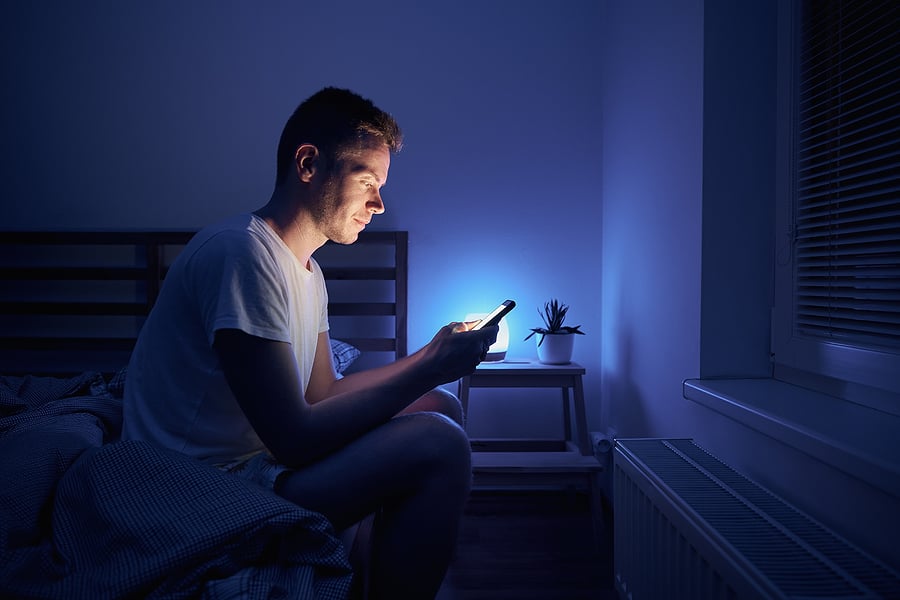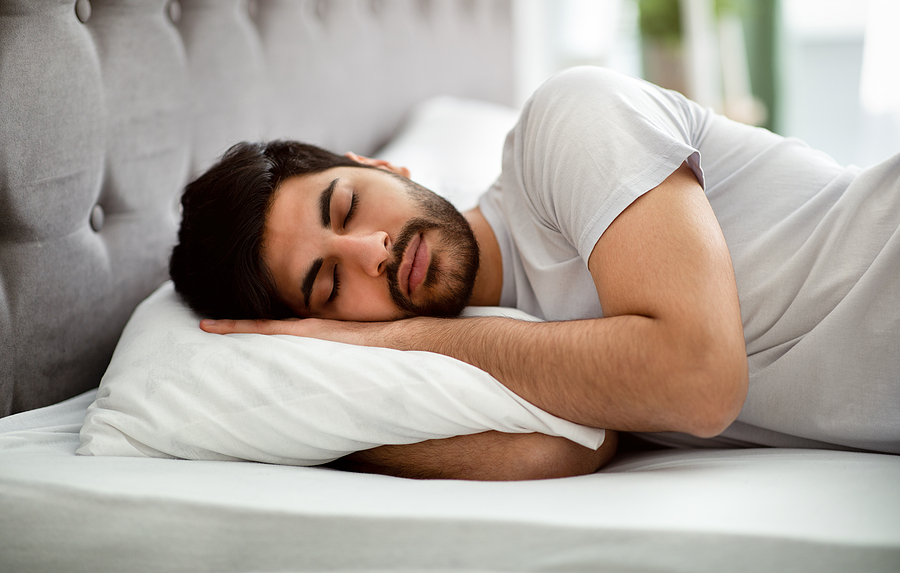The key to getting a good night's sleep is establishing a regular bedtime routine that helps the mind and body wind down for the night. During our sleep, our body restores itself, letting us wake up set to take on another day. Most of us have a nighttime routine as adults, but how many follow it religiously?
If you find it difficult to fall asleep at night, the first step you should do is to examine your pre-bedtime routine. We talked to sleep experts to find out the best ways to wind down, sleep better, and get a good night's rest to develop a nighttime plan that is right for you. Let's explore the following tips.
Related Blog: 7 Reasons Why You're Waking Up in the Middle of the Night
1. Stay Away from Electronics and Gadgets
Contrary to popular belief, watching your favorite Netflix show or browsing through Instagram is not a good way to unwind. Strong blue light is emitted by many electronic gadgets, including computers, televisions, cell phones, and tablets. When you utilize these devices, your brain is tricked into believing it's sunlight because of the blue light they emit. Consequently, your brain suppresses the production of melatonin, which makes you more alert.
Don't play with your mind. Begin your bedtime ritual by saying goodbye to your technological devices. 
2. Stay Away from Alcohol and Nicotine
Both smoking and consuming alcohol can interrupt your sleep pattern in different ways. Nicotine, like caffeine, is a stimulant that increases alertness and arousal. It is true for both smoking and nicotine patches. Smoking cessation is also linked to sleep disturbances, but these usually subside within a few weeks. On the other hand, many people fall asleep faster after drinking alcohol, but sleep issues may arise later after the alcohol has been digested.
3. Stay Away from Caffeine
Coffee contains caffeine that makes you feel alert for a short period, but it might disrupt your sleep pattern. Caffeine's effects are normally at their peak 30 minutes after ingestion. Most people's evening sleep is unaffected by coffee or caffeinated, carbonated beverages consumed early in the afternoon. On the other hand, caffeine can have lingering effects up to seven hours after consumption, so it's better to avoid it in the afternoon and evening.
4. Take a Hot Bath
Your body goes through several hormonal changes as part of the sleep-wake cycle throughout the day. Melatonin generation, which starts in the evening to usher you to sleep, is one of them. Your internal body temperature drops at the same time.
Researchers discovered that simulating the evening decline in body temperature with a warm bath can produce a comparable drowsy response. Consider having a warm bath an hour before going to bed. Your body will warm up from the water and cool down fast as the water dries up, giving you a weary and relaxed feeling.
5. Create a Dark Environment
We all know that ambient lighting is unhealthy for us before bed. However, minimizing any light before bed can assist our bodies in preparing for sleep. At least two hours before going to bed, reduce the illumination level in your home, turn on blue light filters, and tone down the lights of your electronics. Darkening the room encourages the release of melatonin, a sleep-inducing hormone. Maintaining a dark and chilly climate in your room will assist you in creating the ideal environment for falling asleep. It's crucial to be at ease.
The final step in your evening regimen is to get into bed. Make sure that your bed is comfortable and ready to give you a good night's sleep. Think you need a new mattress? Stop by one of our locations or contact us today.




